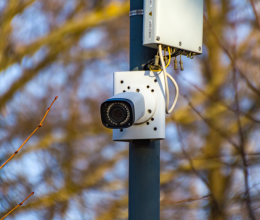
The ACLU of Massachusetts, the national ACLU, and the Electronic Frontier Foundation (EFF), filed a lawsuit against the Department of Homeland Security on behalf of 11 travelers whose smartphones and laptops were searched without warrants at the U.S. border.
The lawsuit challenges the government’s fast-growing practice of searching travelers’ electronic devices without a warrant. It seeks to establish that the government must have a warrant based on probable cause to suspect a violation of immigration or customs laws before conducting such searches.
The plaintiffs in the case are 10 U.S. citizens and one lawful permanent resident who hail from seven states and come from a variety of backgrounds. Several are Muslims or people of color. All were reentering the country from business or personal travel when border officers searched their devices. They were not subsequently accused of any wrongdoing. Officers also confiscated and kept the devices of several plaintiffs for weeks or months.
Among the plaintiffs are Ghassan and Nadia Alasaad, both U.S. citizens and Massachusetts residents. In July 2017, the Alasaads and their children were returning from a vacation in Quebec, where their 11-year-old daughter had become sick. At the border, Customs and Border Protection (CBP) officers questioned Mr. Alasaad and searched through his unlocked phone, detaining the family for hours.
After five hours, an officer ordered Ms. Alasaad to provide the password to her locked phone. The Alasaads objected, in particular because Ms. Alasaad is Muslim who wears a headscarf in public in accordance with her religious beliefs, and she has photos in her phone of herself without a headscarf. The CBP officer told the Alasaads that if they didn’t disclose the password to Ms. Alasaad’s phone, it would be confiscated. The Alasaads reluctantly wrote down the password. The officer then told them that they could remain longer while their phones were searched, or depart and leave their phones behind. Ms. Alasaad told the officer that a male officer could not search her phone because it had photos of herself without a headscarf. The officer told them that it would take two hours for a female officer to arrive, and then more time to search the phone. Based on what they were told, the Alasaads understood that they would need to wait several hours for their phones to be searched. Exhausted and desperate to attend to their daughter’s health, the Alasaads departed without their phones, about six hours after being initially detained.
The Alasaads received their phones approximately 15 days later. Soon after, Mr. Alasaad attempted to access videos of his daughter’s graduation. The phone displayed the message, “Sorry, this media file doesn’t exist on your internal storage.” This problem did not occur before CBP’s search and seizure of the phone.
The number of electronic device searches at the border began increasing in 2016 and has grown even more under the Trump administration. CBP officers conducted nearly 15,000 electronic device searches in the first half of fiscal year 2017, putting CBP on track to conduct more than three times the number of searches than in fiscal year 2015 (8,503) and some 50 percent more than in fiscal year 2016 (19,033).
The case was filed in the U.S. District Court for the District of Massachusetts.
In April, 2019, the ACLU of Massachusetts, the national ACLU, and EFF asked a federal court to rule without trial that the Department of Homeland Security violates the First and Fourth Amendments by searching travelers’ smartphones and laptops at airports and other U.S. ports of entry without a warrant.
Get to know the plaintiffs
Media
- ACLU Blog: We got U.S. Border officials to testify under oath. Here’s what we found out.
- ACLU Blog: For Second Time in 2 Days, Federal Court Upholds Constitutional Rights at the Border
- NBC News: Judge sharply questions warrantless electronics searches at U.S. border
- Fast Company: Warrantless border searches of electronics may be illegal, court rules
- Courthouse News Service: Feds Can’t Dodge Lawsuit Over Tech Searches at Border





